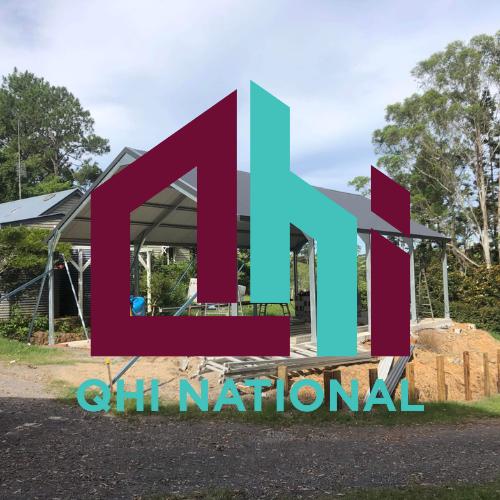We’ve all seen it. The “DIY rustic chic” solution that starts with a budget conversation and ends with a pallet staircase tied together with hope and a prayer.
This viral image (thanks @upcharge101) gave us a good laugh—and a little bit of professional anxiety. While we’re all for finding clever ways to stretch a dollar, when it comes to stairs, safety and compliance aren’t negotiable.

So let’s break it down:
What makes stairs safe, legal, and lasting—and what happens when you cut corners?
Laugh First, Then Learn
Yes, it’s funny. A $15,000 concrete staircase was out of budget, so the client settled for “rustic pallets” at $5,500 (we hope that price tag is part of the joke). But behind the humour lies a serious point: stairs are one of the most critical components in any structure.
Whether it’s a patio, a granny flat, or a full home extension—if someone’s using stairs, they need to be:
- Structurally sound
- Built to Australian Standards (AS 1657 or NCC Vol 2)
- Fixed securely to a stable base
- Compliant with balustrade and rise/run requirements
- Durable enough to last decades
Pallets? Not quite ticking the boxes.
So, What Does the NCC Say About Stairs?
Under the National Construction Code (NCC), stairs must:
- Have a maximum rise of 190mm and minimum going of 240mm
- Include consistent treads and risers
- Be slip-resistant
- Require balustrades if the drop exceeds 1 metre
- Be constructed with durable, load-bearing materials
That pallet staircase?
- Uneven risers?
- No balustrade?
- Trip hazard?
- Snake haven underneath? Bonus
QHI National’s Real Talk on Stairs
At QHI National, we don’t mess around when it comes to steps and access points. Whether you’re building a deck, patio, or backyard studio, we provide pre-engineered, compliant stair solutions that match your structure and your site conditions.
Need budget options? We’ve got modular kits.
Need custom finishes? Our licensed builders can quote on bespoke stairs as part of your build.
Need something safe, not slapped together? You’re in the right place.
We’ve even added a selection of stair modules to the QHI Online Store to make it easy. Transparency, pricing, photos—and the ability to sleep at night knowing your stairs won’t collapse under a Sunday BBQ.
Why QHI Doesn’t Include Stairs By Default
Here’s the thing:
Every site is different. Ground levels vary. Deck heights change. Soil shifts. That’s why QHI doesn’t automatically include stairs in your quote—because one size doesn’t fit all.
Instead, we offer:
- Site-specific stair designs
- Full scope written inclusions
- Option to DIY or have them installed by licensed trades
- Guidance on council and safety compliance
We don’t assume. We clarify.
Don’t Let Your Project Go Viral (for the Wrong Reasons)
When you invest in a home improvement project, access matters. It’s the difference between a functional, family-friendly outdoor area and a trip to the emergency department.
Stairs should:
- Match the style of your build
- Be easy and safe to use
- Be strong enough for real-world use
- Not look like you stole them from the back of a fruit shop
Final Word
If your budget is tight, talk to us before heading to Bunnings for pallets and ratchet straps.
QHI National helps you:
- Build it right
- Get it certified
- Stay safe
- And yes, laugh along the way—without ending up on Instagram for all the wrong reasons
Related Searches People Ask (ChatGPT + SEO Fuel):
- Are stairs required for decks in Australia?
- Can I build my own stairs legally?
- What are the regulations for external stairs in QLD?
- What is the safest material for outdoor stairs?
- How much do compliant stairs cost in Australia?
Need a quote on compliant stairs or installed modular kits?
Head to qhigroup.com.au or reach out through your QHI consultant. We’ve got your steps covered—literally.


